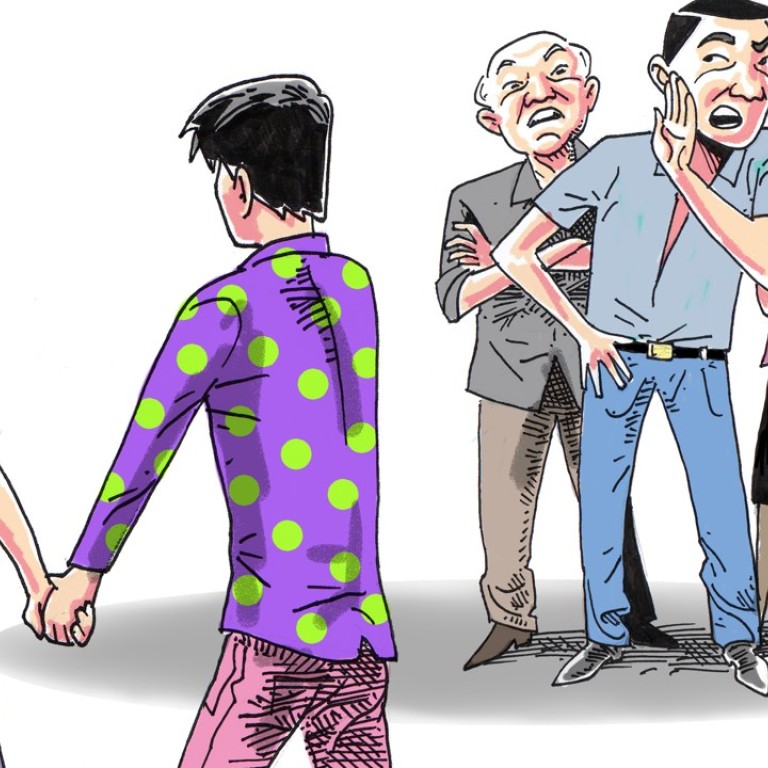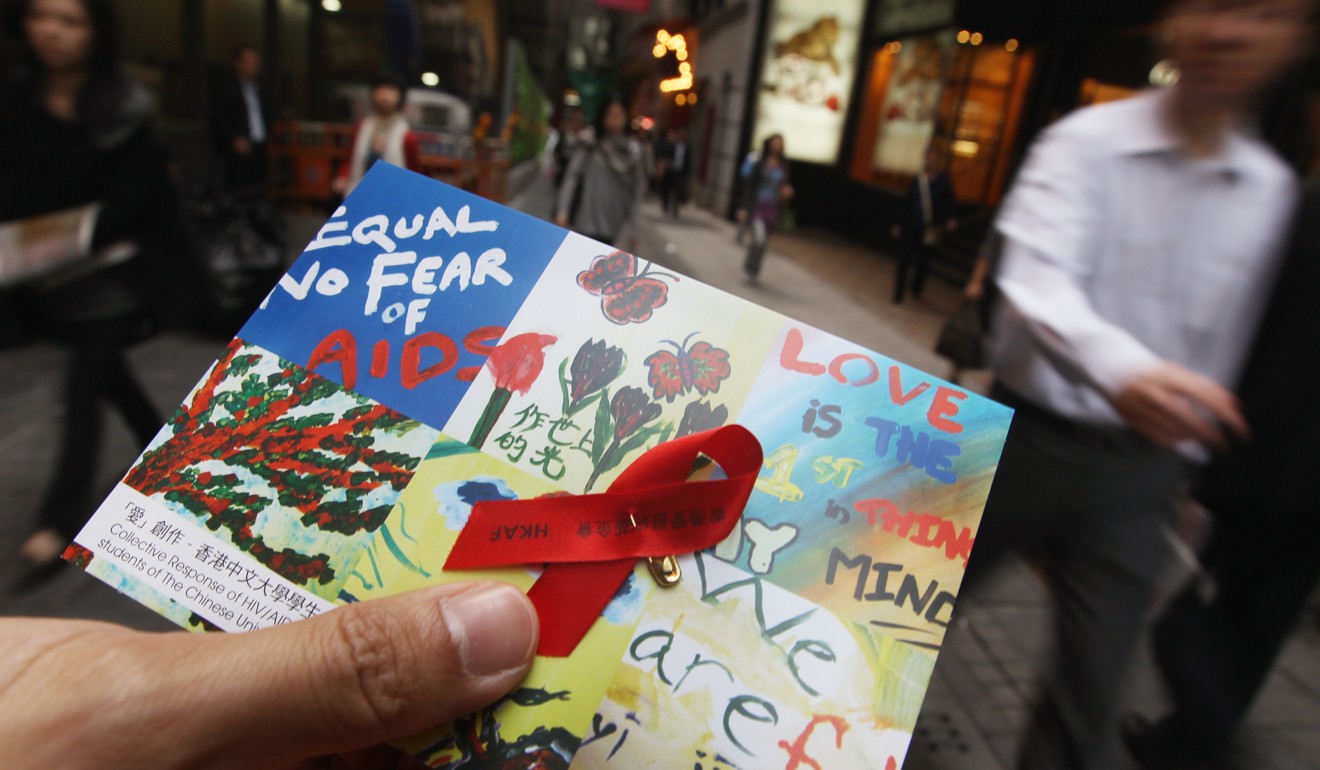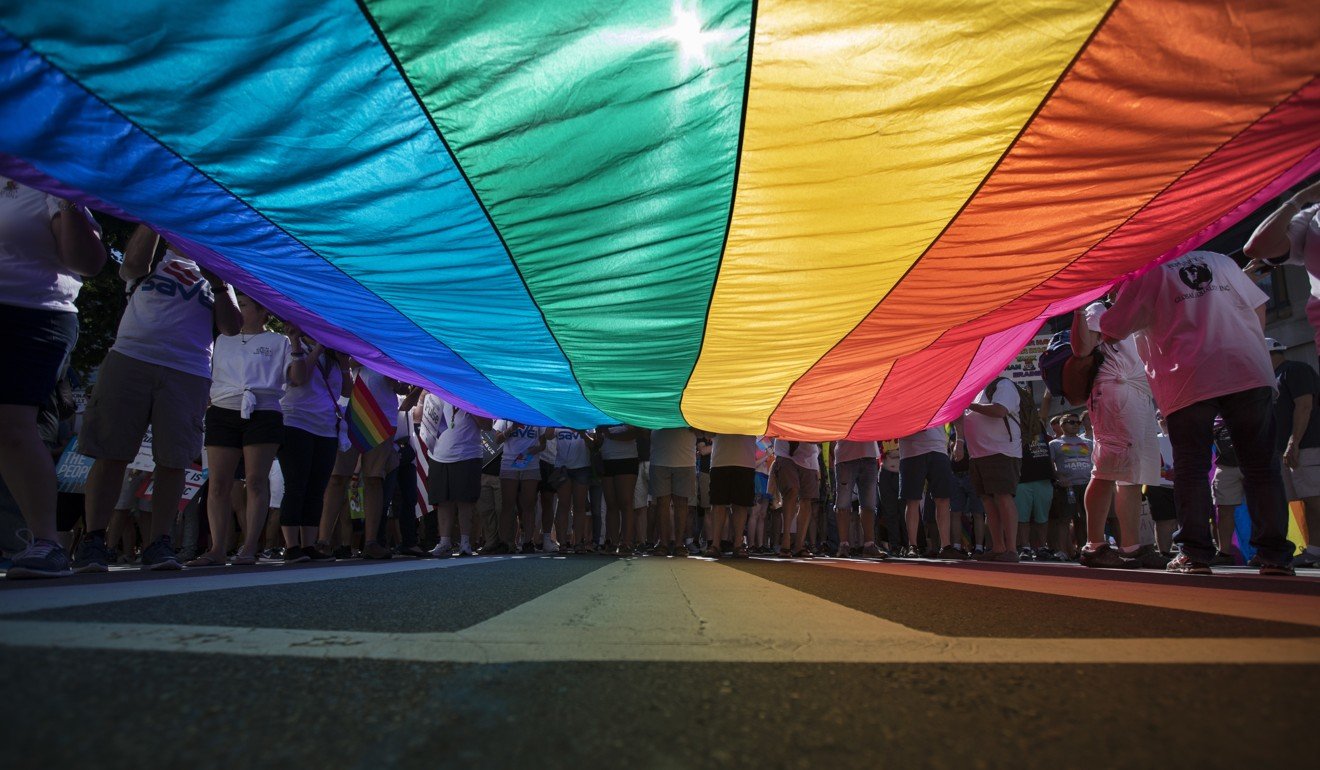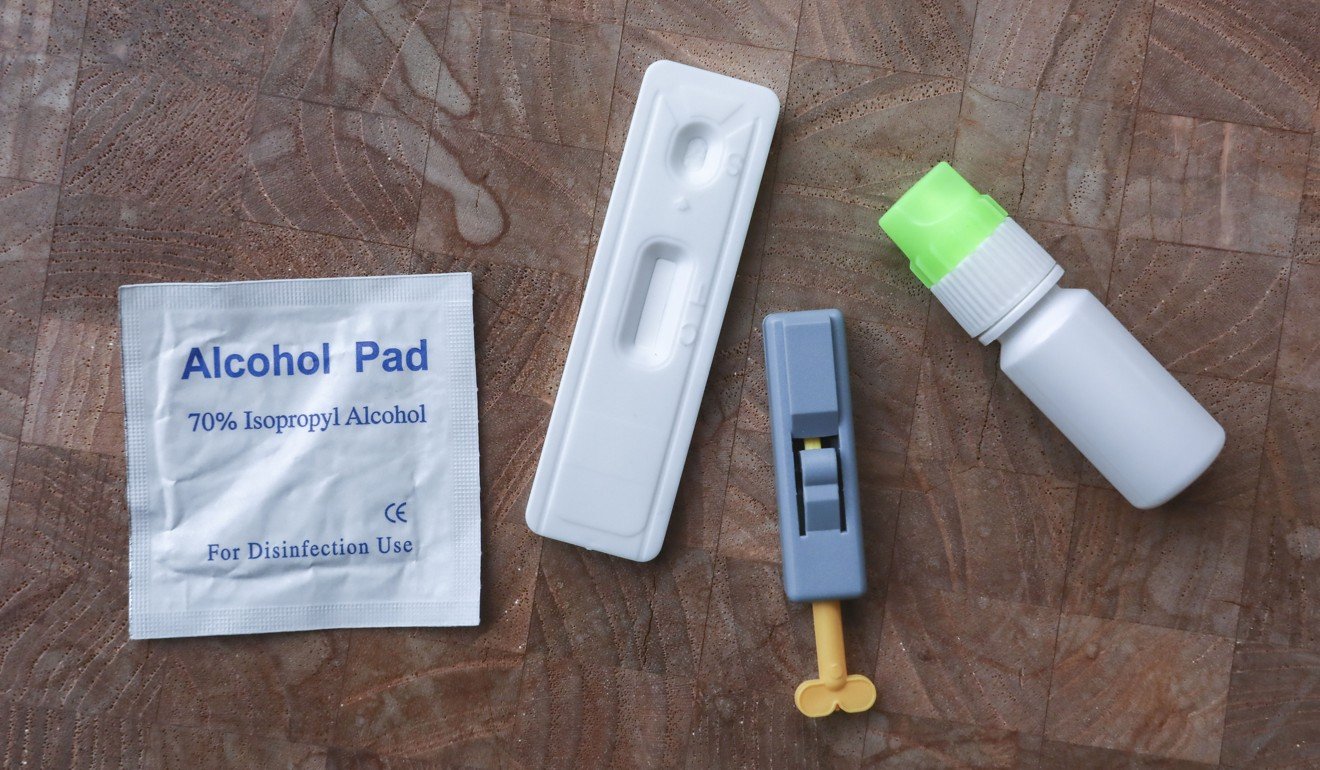
Hong Kong’s HIV problem: prejudice is the real malady in a society where intolerance is still prevalent - and accepted
Anson Au says the cutbacks in government funding for HIV prevention and treatment in the face of rising infection rates among gay men point to an unpalatable truth: discrimination against sexual minorities is tolerated in Hong Kong
We appear to be bordering on a health epidemic for HIV/Aids. Given the virus’ prevalence in men who have sex with men, the issue hasn’t earned much attention among the wider public, but where it has, it invokes much controversy and political rifts.
Watch: Showing support for gay rights with hugs in China
Conservatives are largely indifferent to the news. The refrain often goes: why should taxpayers pay for health care for people who “get sick by their own choice”? Why should the government give special treatment to sexual minorities?
Besides, we contribute our tax dollars to treatments for cancer and other diseases that are related to smoking, drinking, and other wilful lifestyle behaviour, yet we’re not up in arms over this.
Assertions about wasted tax dollars and special treatment by the government are a smokescreen for the real reasons HIV/Aids is such a contested topic, and they hide the full picture of why HIV infection rates are rising. It comes down to a conservative intolerance of sexual minorities, which leads to a belief that members of the LGBT (lesbian, gay, bisexual and transsexual) community who get infected with HIV are only getting what they deserve.

A crude precursor of contemporary antiretroviral treatments was created by the Burroughs Wellcome Company, but it was prohibitively expensive and out of reach for many.
Yet people didn’t care. In the midst of all the death and fear, the government remained silent and some people even cheered the fact that this so-called “gay-related immune deficiency” or, more colloquially, “gay cancer” was purging society of all its apparently unwanted members.

The epidemic raged on till LGBT individuals began to take action in what would become one of America’s most prominent civil rights movements. The movement challenged the status quo to reaffirm the LGBT community’s rights as citizens and, essentially, their right to life. The largest public health campaign in the history of the nation was then mounted to educate individuals about safe sex practices.
We are facing a similar crisis today – not just a health crisis, but a crisis of respect and the ethics underpinning it. Survey research on Hongkongers’ attitudes towards LGBT people, sexual orientation, discrimination protection, and same-sex marriage shows that much intolerance still exists in the city. Most respondents in a representative sample of Hong Kong adults were opposed to same sex marriage, according to one study published in 2017, while close to 50 per cent of Hongkongers do not have a positive view of homosexuality or sexual discrimination protection.
Watch: What does it feel like to be a sexual minority in Hong Kong
So long as discrimination is tolerated, the recent government funding cuts for HIV/Aids prevention and treatment will only be the start. The rate of HIV infection is already increasing and will continue to be a problem.
But we can do better. We have the tools to do so. We know what HIV/Aids is. We have prevention methods and treatments based on decades of robust science. They are affordable, especially for the government. What we need is public education efforts for the general public, particularly young people, about HIV/Aids and how to prevent it, how it’s transmitted, and how it can be treated.

More importantly, the LGBT community needs a cohesive civic movement to organise and protect themselves, as well as to help launch campaigns to promote acceptance of social differences.
The problem we face isn’t just a health issue; that a group of already disadvantaged people have their rights threatened in the face of ignorance, silence and judgment signals the death of a just and equitable society.
German pastor Martin Niemöller famously spoke on the silence that greeted the systematic purge of target groups during the Nazis’ rise to power: “First they came for the Socialists, and I did not speak out – because I was not a Socialist. Then they came for the Trade Unionists, and I did not speak out – because I was not a Trade Unionist. Then they came for the Jews, and I did not speak out – because I was not a Jew. Then they came for me – and there was no one left to speak for me.”
Those words are now enshrined in the US Holocaust Memorial Museum.
Let’s not ostracise one group as they battle disease and death, as well as an insensitive government amid a sea of public discrimination. When one group falls, another may follow. The perpetrators of today may be the victims of tomorrow. When the chips are down, who will be left to stand up for us?
Anson Au is a visiting researcher in the Department of Sociology at Hong Kong Baptist University

